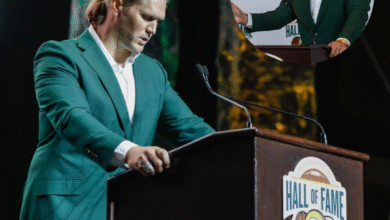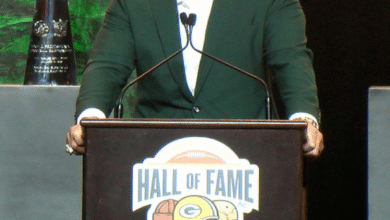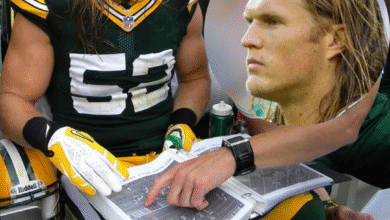When His Family Couldn’t Afford the Dream — Savion Fed It with Blood and Sweat
OPINION: This article may contain commentary which reflects the author's opinion.
Savion Williams didn’t grow up with a silver spoon. In fact, he barely had a football. Born in Marshall, Texas, to a working-class family with limited means, Savion learned early that chasing a dream in sports wasn’t just about talent—it was about sacrifice. While others had private trainers and flashy gear, he had determination, a hand-me-down pair of cleats, and a backyard that doubled as a training ground.
“I knew my parents were doing their best just to keep the lights on,” he said in a rare interview. “So, football wasn’t something they could throw money at—it had to come from me.”
And it did. When his high school teammates went to summer camps out of state, Savion stayed behind, running drills alone in the Texas heat. He studied YouTube tutorials like gospel, mimicking footwork and route trees in the dust. Without financial backing, he built his body with what he had—pushups, sprints, and grit.
Coaches noticed. Not just for his athleticism, but for his raw hunger. “He was never the loudest, but you could see it in his eyes,” said his high school coach. “Savion wasn’t playing for fame—he was playing like it was his way out.”
Despite the lack of resources, Savion earned a scholarship to TCU. But even there, the struggle followed. He often skipped meals to stretch his stipend. He sent money home instead of spending it on himself. Yet, he never once asked for pity.
Instead, he used the adversity to fuel him. By his senior season, he had transformed into a standout wide receiver—explosive off the line, fearless across the middle, and unshakable in clutch moments. NFL scouts took note, not just of his talent, but of his resilience.
At the 2025 NFL Draft, when his name was called, it wasn’t just a personal victory—it was a culmination of every drop of sweat shed without applause, every silent night spent wondering if the dream was too big for his reality.
But in the end, Savion proved that dreams don’t always need to be funded—sometimes, they just need to be believed in.



